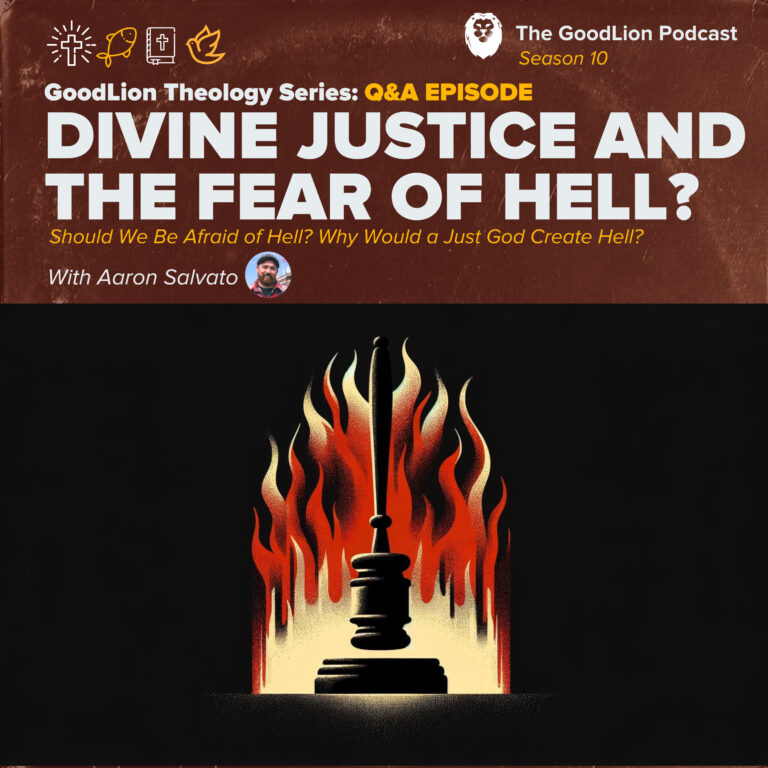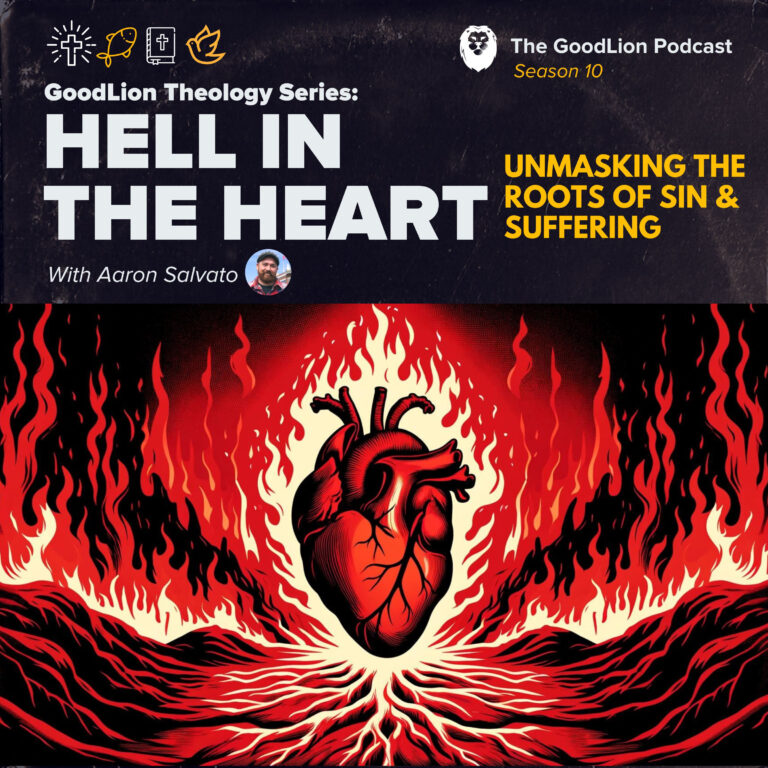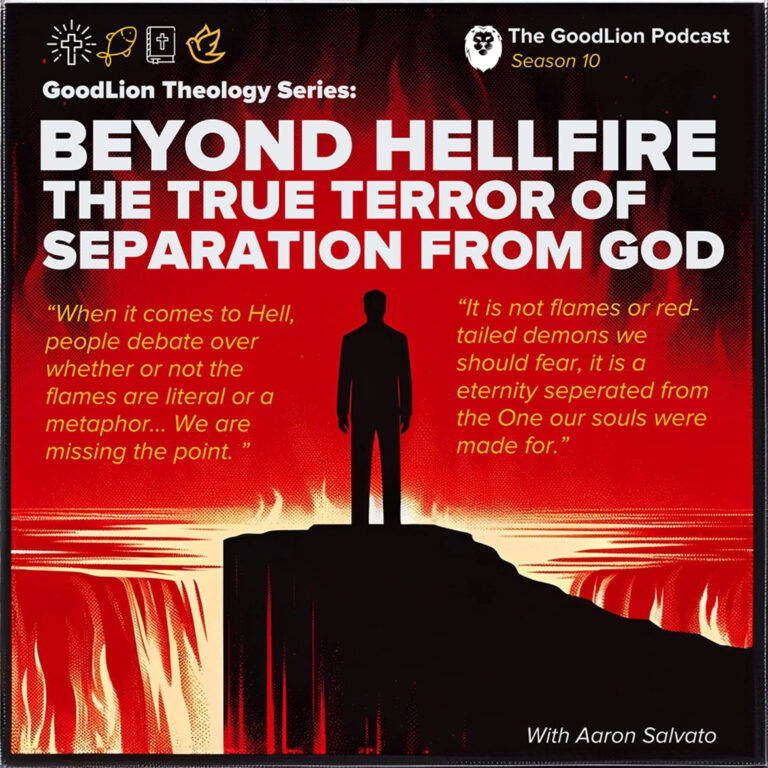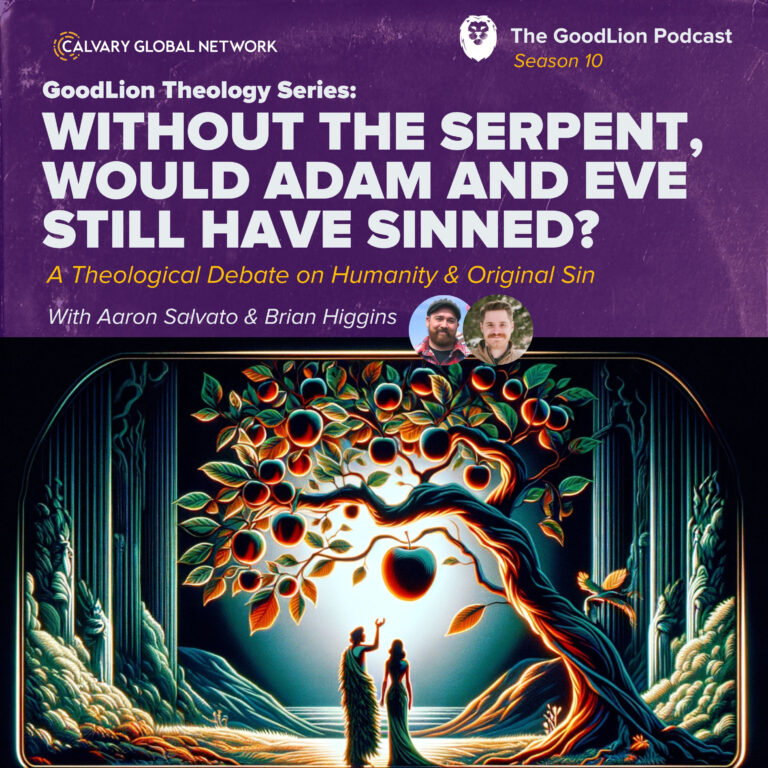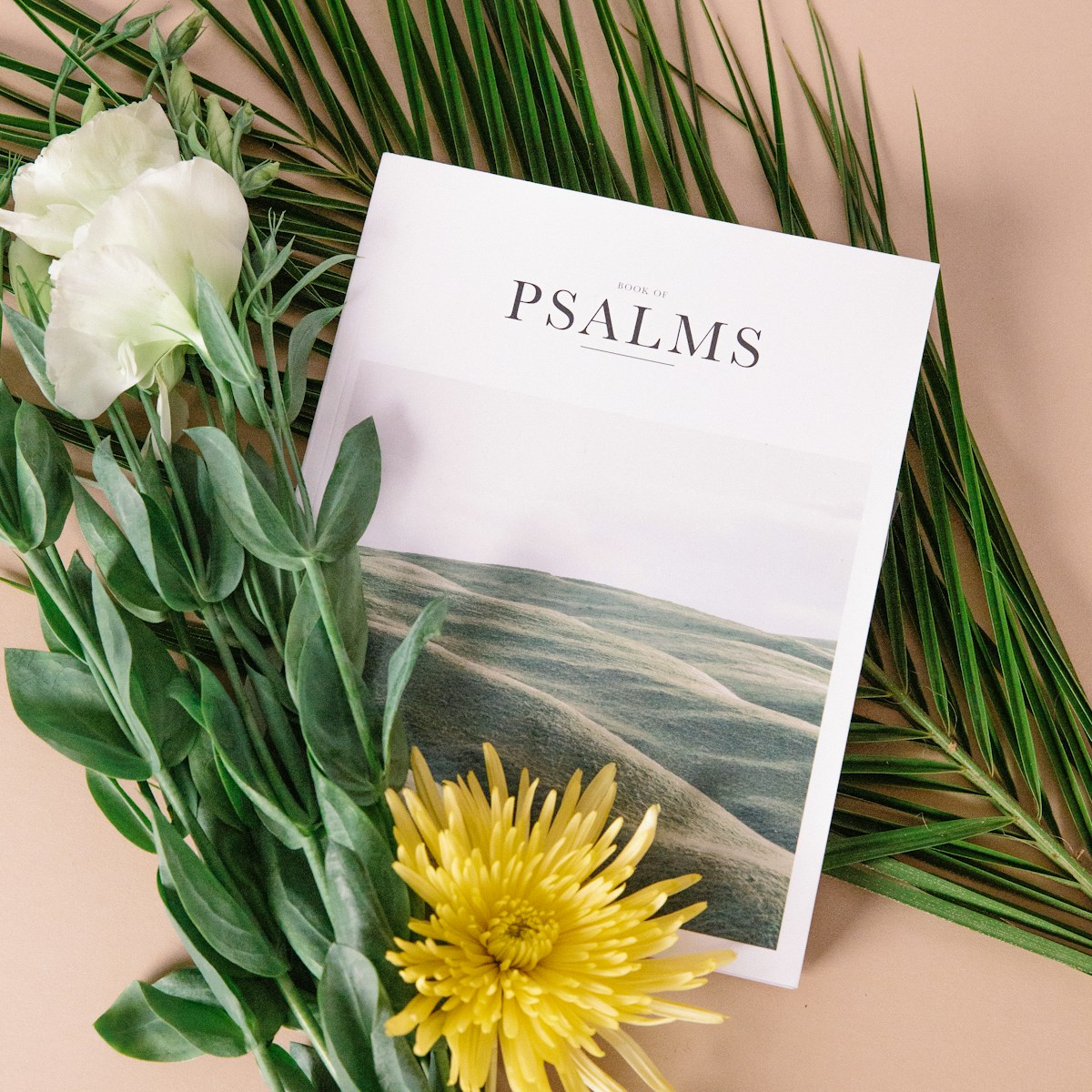
(Editor’s note: this article explains the motivation and main observations that led to the creation of Psalmcast, a GoodLion original podcast that explores the book of Psalms. Click here to learn more about Psalmcast.)
Back in 2015, I was a Bible College teacher in the UK.
As I was considering what I could teach for the upcoming semester, my wife suggested a class in the Psalms. That seemed like a fun idea, but we all sort of know what the Psalms are about. Lots of praise and singing and fodder for devotional books, right?
As a lifelong student, I knew the best way to learn was through teaching, so I took the plunge and did some deep study. What I quickly found revolutionized how I understood the Psalms.
First, the Psalms are a book.
Pretty revolutionary, right?
I know that seems obvious, but we don’t usually read the Psalms this way.
One of the first lessons in Biblical interpretation is the importance of context. We are taught that we should never read a verse or chapter of the Bible in isolation. A lot of false teaching results from neglecting this very basic rule.
When it comes to the Psalms, though, we read any given Psalm in isolation.
Sometimes, we connect the Psalm to the life-moment of the author. We read Psalm 51 in light of 2 Samuel’s account of David’s rape of Bathsheba. The Psalm itself directs us there.
But what about all the Psalms that don’t clearly point us to a story? And even if they all did, is David’s life the best context for reading his Psalms? What about neighboring Psalms?
What if we read a the Psalms like we read other books: in context?
For example, does Psalm 15 have anything to do with Psalm 14 or 16? Most would assume not, but in my studies I consistently found deep connections with neighboring Psalms.
Second, the Psalms are intentionally arranged.
Rather than Israel’s “greatest hits” on shuffle, the Psalter is a carefully arranged collection.
The Psalms are actually divided into five books (Pss 1-41, 42-72, 73-89, 90-106, 107-150) with an introduction (Pss 1-2) and conclusion (Pss 146-150). Each book has its own themes and even tells a narrative of exile and return.
It’s no coincidence that the first two Psalms present major themes that we find throughout the Psalter (Torah, Zion, a Messiah, etc.) and that the final five are major celebrations (“Hallelujah Psalms”) of God’s universal kingdom.
Third, the Psalms are prophetic.
We usually think of the Psalms as Israel’s ancient worship songs that reflect on their history. While this is true, they’re so much more.
The Psalmist were all connected with the gift of prophecy. The Psalms are in fact prophetic and focused on the “end times.”
Not only can we find support for this in the wider Old Testament and the Psalms themselves, but this is how the Psalms were interpreted before and after Christ. It’s only in the more recent generations that we saw them as a) windows into ancient worship or b) simple devotional literature.
Fourth, the Psalms are songs of Jesus.
The Psalms are not just prophetic; they’re prophetic songs about Jesus.
I mean two things by this.
First, they predict the Messiah (e.g. Pss 22, 45, 110).
Second, they’re not just “about” Jesus, they are “by” Jesus.
Jesus is actually the speaker in many—if not most—of the Psalms. Jesus Himself speaks in the Psalms in the first person.
This is exactly what Peter says in Acts 2 when he quotes Psalm 16 and puts it on the lips of Jesus. Reading the Psalms as Jesus’ very words radically transforms how we read them and gives us a special glimpse into Jesus’ inner thought (and prayer) life.
Fifth, the church largely hasn’t realized these facts.
Though what I’ve said above may seem radical, it’s all found in ancient tradition and is currently being reclaimed by modern scholarship.
However, the modern church lost these insights somewhere along the way.
This is somewhat unsurprising since the evangelical church has only recently begun to take interest in early church doctrine, and modern scholarship usually takes decades for Biblical scholarship to trickle down into the church.
Join me in re-reading the Psalms
The Psalms have so much for us that they deserve our serious study. My hope and prayer is that God will meet you in Psalms in ways far grander than you may have realized were possible. May the songs of the Psalms live in your heart as they connect you to the grand story Jesus has placed us in.



